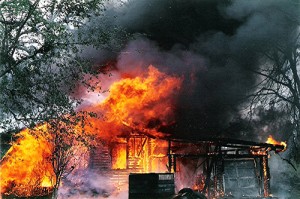 Being a landlord can be a busy job; there are listings to manage, maintenance and repairs to arrange, and the stress of running your own business. But among all the other responsibilities, there’s one that could leave you sharply out of pocket in the event of an emergency, accident or disaster. If you own a rental property, it’s absolutely essential to make sure your property is covered by the correct insurance.
Being a landlord can be a busy job; there are listings to manage, maintenance and repairs to arrange, and the stress of running your own business. But among all the other responsibilities, there’s one that could leave you sharply out of pocket in the event of an emergency, accident or disaster. If you own a rental property, it’s absolutely essential to make sure your property is covered by the correct insurance.
Picking the right coverage
Because rental mortgages have become a relatively attractive investment with the current low interest rates, it seems like almost anybody with savings to invest could become a landlord and earn a nice monthly income from rent alone. However, it’s a substantial responsibility to take on without the proper protection in place: poorly informed landlords are setting themselves up for a nasty – and costly – reality check.
A recent survey showed that 25% of landlords had the wrong insurance or worse – no insurance at all. Others bought cover suitable for a standard household, rather than a commercial policy. As insurers are very particular about policyholders obtaining the right cover, this could lead to denied coverage if you ever need to make a claim.
Among the landlords without correct cover, there was a surprising lack of knowledge about landlord insurance. 43% had never heard of it. 28% thought their residential cover was the same as landlord cover. And 11% decided to save money by buying cheaper residential cover – risking a far larger bill if they were denied a claim.
Types of landlord insurance
Each year, one in twenty landlords makes a claim – with these high odds, landlord insurance is an investment you won’t regret, if only for the peace of mind it buys. At its most basic, your insurance should cover liability for the property owner – this covers legal costs and damages you might incur if there was to be an accident in your house or on your property. On top of that, you’ll need building coverage in case of any damage to the property itself, or in the event of a disaster such as a fire.
Additional coverage might include contents insurance, for furnished accommodation, so any accidental or malicious damage to your furniture and other provided items can be repaired or replaced. You can also arrange for other premiums, such as reimbursement of rent and alternative accommodation arrangements for your tenants if the property becomes uninhabitable. It’s important to remember that not all policies will cover your property when it is unoccupied, so check with your insurer to make sure you’re fully informed.

I’m not a landlord, but it sure does sound dangerous not to have the right coverage if you are one. Having a property get trashed could end up costing a lot of money, so proper insurance is essential.
No matter who you are having insurance is very important. In Canada the landlord will have the insurance on the building but as a tenant you need to have your own insurance or you can wave goodbye to all your belongings if something were to happen.
We definitely looked into getting the right insurance for our rental. Unfortunately, you never know what you aren’t aware of.
Regardless whether your a tenant, an homeowner or a landlord an insurance is always a must have. Your article however is really important to note especially with the different types of landlord insurance.
huh, I had never heard of landlord insurance. Thanks for posting this!
One in twenty is really high, I wonder how many actually get compensated. I could have made a few claims with my insurance but out of laziness and worry the premiums would go up I didn’t.